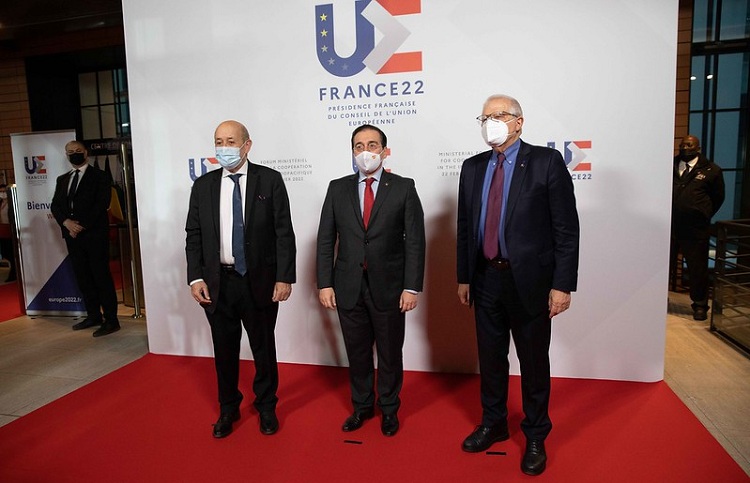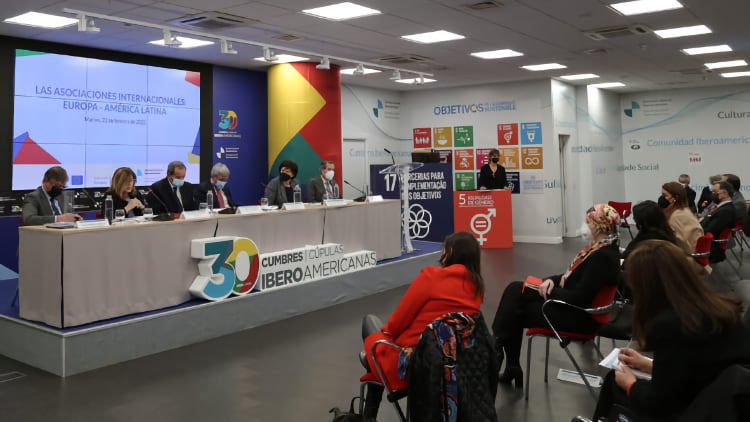The Diplomat
The Minister of Foreign Affairs, José Manuel Albares, participated yesterday in Paris in the Ministerial Forum on Cooperation in the Indo-Pacific Region, organized in the framework of the French Presidency of the Council of the European Union.
The event was opened by the High Representative of the Union for Foreign Affairs and Security Policy, Josep Borrell, and the French Minister of Foreign Affairs, Jean-Yves Le Drian. In his speech, Borrell stated that “the center of the world is moving towards the Indo-Pacific” and recalled that, “together, the Indo-Pacific and Europe account for 70% of world trade in goods and services and produce 60% of world GDP”, so “we have every interest in working together in a world where strategic competition is increasing and cooperation is decreasing”, he continued.
“We, the European Union, have a strategy for the Indo-Pacific,” said Borrell, who announced, as Europe’s main goals in the region, the conclusion of trade negotiations with Australia, Indonesia and New Zealand and the economic partnership agreement with the East African Community; the resumption of trade negotiations with Malaysia, the Philippines and Thailand and the possibility of an interregional trade agreement with ASEAN; the intensification of dialogue on security and defense and the “peaceful resolution of the crisis in Myanmar.” In this regard, he recalled that the Foreign Affairs Council of the European Union on Monday approved a fourth package of restrictive measures against the military regime in Myanmar and appointed a special envoy for this country who will support the efforts of ASEAN and the UN.
As reported by the Ministry of Foreign Affairs, the Paris meeting was articulated around three parallel discussion tables, which dealt with security and defense, connectivity and digital partnerships and global affairs. The aim of these roundtables was to launch a series of concrete projects and to demonstrate the EU’s commitment to the Indo-Pacific, as well as to establish a strategy for cooperation between the EU and the region.
At the end of the meeting, the participants adopted a joint declaration in which they underlined “the shared ambition to work together for peace, prosperity and sustainable and inclusive development in Europe and the Indo-Pacific”, reaffirmed their “commitment to an international order based on democratic norms, values and principles, as well as to strengthening multilateralism and the rule of law” and committed to “promote the development of the Indo-Pacific region and strengthen ties between the EU and Indo-Pacific partners through cooperation and solidarity actions” based on the 2030 Agenda for Sustainable Development, the Paris Agreement on climate change and the Convention on Biological Diversity (CBD). Likewise, the ministers pledged to “strengthen their cooperation” in areas such as security and defense, connectivity and digital issues and “global issues such as climate change, preservation of biodiversity and oceans, and health.”
José Manuel Albares also took the opportunity to hold bilateral meetings with several of his counterparts from the Indo-Pacific region, such as Australia’s Marise Payne, with whom he discussed the security situation in Europe and the Indo-Pacific and the Australia-EU free trade agreement; New Zealand’s Hon Nanaia Mahuta, the Philippines’ Teodoro Locsin Jr and India’s Subrahmanyam Jaishankar.







